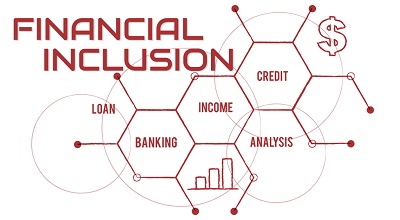
Financial literacy plays major role in combatting financial exclusion

By the Financial Literacy Initiative.
The Financial Literacy Initiative (FLI) is a national platform established to enhance financial education by promoting financial wellness through training, activations and customized public talks. The FLI serves as the nexus between the public and the private financial institutions that make up the Namibian financial sector by engaging them on financial inclusion issues and developing educational tools for public education.
The World Bank defines financial inclusion as efforts made to ensure that individuals and businesses have access to affordable financial products and services transparently regardless of their income or status in society.
Financial inclusion is primarily defined as merely providing financial access to the ‘banked/unbanked’. However, ‘access’ is only one dimension of the three that make financial inclusion effective, and these are Access, Usage and Quality.
The SADC Financial Inclusion Strategy defines these three as follows:
Access: “availability of affordable and appropriate financial products and services” Usage: “uptake or utilization of financial products and services”. Quality: “product design and functionality that enhance the value of services to clients”.
Financial inclusion aims to provide financial solutions to all citizens including the vulnerable, marginalized and underprivileged groups, especially the youth and women in the rural areas.
The NSA 2017 Namibia Financial Inclusion Survey shows that Namibia’s financial exclusion level decreased from 31% recorded in 2011 to 22%, majority of those excluded were found to be residing in rural areas.
Having a bank account (banked) as a measure of financial inclusion may be misleading as many people have bank accounts but do not have access to financial products to meet all their financial needs i.e. they lack access to loans or credit facilities. In some instances, people have bank accounts that are dormant/inactive or underutilized because their benefits are not competitive and usage thereof does not add value to consumers, products/services are not user-friendly or do not meet the clients’ budget expectations.
The FLI provides financial education to improve the financial capability of citizens. A well informed and educated population will have the confidence to participate in financial markets and be in a better position to invest and take up ownership. Additionally, consumers can make better financial decisions, thus reducing debt whilst buying products and services that better suit their needs and finances. For instance, well-informed consumers will be able to compare different insurance products and may then settle for one that offers more benefits against costs. More so, they would understand the importance of borrowing to invest in education and business ventures other than allocating such towards consumption smoothing.
Financial inclusion contributes to financial market efficiency and effectiveness, leading to market deepening and strengthening, which will ultimately contribute to overall economic growth thus, reducing inequality and uplifting the poor and disadvantaged communities through inclusive growth.
Financial inclusion is an enabler for a conducive environment for the empowerment of individuals and businesses.
Financial inclusion is aimed at providing access to facilities for people to make/receive payments in a secure, simple, and affordable manner; easy, quick and secure remittance, or money transfer for all; access to basic no-frills banking accounts, which offers very basic accounts that have very low bank charges and also requiring very low minimum opening balance; availability of simple credit products and overdrafts linked to no-frills accounts, savings products (investments and retirement funds); and registration and licensing of institutions that provide micro insurance and micro pension products for low-income groups and informal sector employees to mitigate risks and external shocks, provide security and some form of safety net protection.
Overall, financial inclusion aims to bring all role players, both public and private, together to promote an inclusive financial system. Thus, effective public and private partnerships are tantamount to addressing the issues of financial inclusion.
Although the financial exclusion rate declined by 9% between 2011 and 2017, access to financial information and digital financial services remains a challenge, which is worsened by low levels of financial literacy.
The FLI’s continuous efforts to take financial education to the rural population are often undermined by language barriers and communication breakdown, hence the recent initiatives to translate educational booklets into local languages.
Rigid requirements and high minimum balance by commercial banks discourage low income and/or the informally employed from opening banking accounts. Payment of social grants (old-age pensions, orphanage grants etc.) in cash reduces the need for people to acquire bank accounts thus, maintaining the “unbanked” status quo. If allowed for a long time, this practice has the potential to undermine the country’s quest to participate actively in the provisions of the 4th industrial revolution, in which technological money transfers by members of society should increase.
Despite fintech advancement and banks moving more into online banking services and mobile phone applications (banking apps), the rural poor remain excluded due to poor infrastructure (internet services), which limits access in areas where they reside. Unwillingness to embrace technological advances due to fear of losing money resulting from poor financial education and lack of consumer protection laws are inhibitors to full participation in the use of technology for financial services providers.
For a country to effectively address the issue of financial exclusion both the private and public sectors must commit to working together to collectively promote inclusion for all.
The government will ensure a healthy, well-monitored regulatory environment, and improve citizen documentation procedures to enable Know-Your-Customer (KYC) compliance. Furthermore, the Government is committed to encouraging payments of social grants into basic bank accounts to ensure that formal banking services are rolled out to the formerly unbanked.
The private sector will complement government efforts by investing in a wide range of specialized innovative products and services such as digital identification (KYC) that would promote market competition. Financial institution should also allow indiscriminatory access to information for all.
The Namibia Financial Sector Strategy (2011-2021) outlined four outcomes to be achieved to ensure financial inclusion in the country: firstly; for Namibia to have and implement a consumer protection legal framework in the financial sector, which will inculcate transparency and disclosure as well as consumer complaints and redress mechanisms. This will not only address the issue of the distorted flow of information between financial service providers and consumers but will enable consumers to make rational decisions based on available information, encouraging responsible dealings, and providing debt counselling whilst preserving confidence in the financial system.
Second, increasing the national financial literacy rate through developing clear policy framework for the coordination of financial literacy initiatives, developing and regularly updating national baseline data, incorporating financial education into the school curriculum to impart skills and knowledge from a young age, developing and enforcing mechanisms to monitor and evaluate the effectiveness of financial literacy programmes.
Thirdly, improved access to financial services and products to all Namibians by ensuring the availability of micro-insurance products, exploring the possibility of registering movable collateral. Achieve financial inclusion, efficiency, and affordable low-cost financial services by setting and implementing clear standards for fees, whilst maintaining a good balance between financial access and financial integrity. Lastly, Namibia to have effective institutions that will provide appropriate support and advisory services to SMEs in order to increase knowledge and access to finance.
In conclusion, financial inclusion reduces inequality in society as services are available to all, regardless of income levels and/or geographical location, improves living standards when people are educated on various financial products and can access credit facilities as well as invest in education and health. Financial literacy and access to affordable loans enable people to start businesses and create employment for themselves and others. Ultimately, effective financial inclusion increases the possibility of people engaging actively and leading to overall economic growth.












































